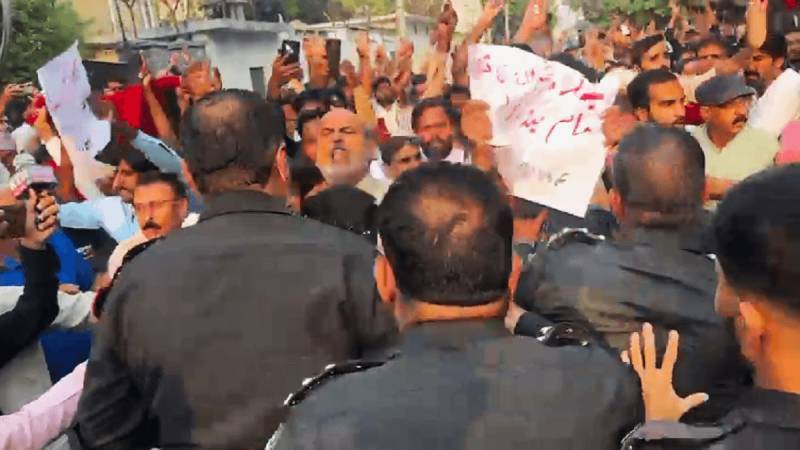
Throughout human history, extremism has been in direct conflict with rationalism in every era. For example, after the fall of the Roman Empire, 'The Church' filled the power vacuum and emerged as a new institutional force in Europe. Consequently, for decades, citizens were forced to pay a 10% tax to the Church, while the Church itself was exempt from taxes. The Inquisition, a powerful office established within the Catholic Church, was created to root out and punish heresy across Europe and the Americas. Beginning in the 12th century and continuing for hundreds of years, the Inquisition became infamous for its severe torture and persecution of Jews and Muslims. It was a dominant force for centuries, leading to some 40,000–60,000 executions of scientists, scholars, authors, and writers, including notable figures like Bruno, Galileo, Descartes, and many others among the common people. Ultimately, these sacrifices and continuous episodes of resistance culminated in the revolutionary movements of the 19th century, leading to the abolition of the Inquisition and the Church's dominance.
Does Pakistan still follow in the footsteps of the Inquisition, given that it has an officially adopted religion, a Sharia court, and dangerous blasphemy laws that do not provide justice but rather serve to punish suspects based on unproven allegations, similar to the Roman Inquisition? Sadly, Pakistan is a state where if you protest against either religious extremism or rape, the police beat you. Meanwhile, individuals like Zakir Naik, despite making rape-apologist statements, remain a state guest. In contrast, the police kill victims of religious extremism, and parliamentarians refer to them as 'Ghazis.'
The state seems to be under severe stress, weakened by its ideology and eroding integrity. Tragically, it appears that a civil war has irreversibly begun, fueled by the state itself due to its policies.
Recently, the attack on the Rawadari March for Peace by the Sindh Police, under government orders, has explicitly exposed the same pattern of brutality seen in the case of Dr Shah Nawaz, whose extrajudicial murder occurred while in police custody. Over the past year, a series of crises—such as the May 9 incidents, BLA's separatist movements, the rising trend of the state's repressive measures against Baloch activists, the increasing wave of extrajudicial killings, the issue of missing persons, rising sectarian and religiously motivated violence, the ban on the PTM, the crackdown on the PTM’s Grand Jirga, the profiling of progressive activists, state-backed blasphemy politics, inflamed public anger against the dacoits in the riverine lands, and the excessive militarisation of education, the economy, land-grabbing, corporate farming, and the dangerously proposed 26th Amendment—have all pointed to a federation in peril.
The state seems to be under severe stress, weakened by its ideology and eroding integrity. Tragically, it appears that a civil war has irreversibly begun, fueled by the state itself due to its policies.
These events are interconnected. The crackdown on the Rawadari March by the Sindh government is part of a conspiracy led by the PPP, the federation, and the establishment, who, through these violent acts, aim to appease religious parties, particularly Maulana Fazlur Rehman, in hopes of securing their votes for the 26th Amendment, which requires a two-thirds majority in both houses. By turning a peaceful Rawadari March into a controversial issue, the PPP government has played a calculated political trick.
However, these actions are fueled by propaganda, engineered by 'The Masters,' managed by the state, and overseen by its bureaucrats. For instance, when the Baloch Yakjhati Committee called for a protest in front of the Karachi Press Club in solidarity with the Baloch Raaji Muchi, police constables were seen aggressively attacking, abducting, and arresting Baloch protesters while chanting particular ‘slogans’. The same behaviour was witnessed during the recent police crackdown on the Sindh Rawadari March, where Sindh Police constables were seen humiliating and attacking peaceful protesters, this time chanting religious slogans aligned with a particular ideology. This reveals that many police officers and forces are brainwashed to view peaceful Baloch protesters as members of the Balochistan Liberation Army and Rawadari participants as an 'anti-religion group.'
The police demonstrate a specific mindset and hateful behavior, sometimes driven by so-called fascist patriotic motivations, as seen in the crackdown on Baloch protesters; and sometimes by religious ideology, as evidenced by their initiation of a 'war on peace' with brutal violence against the peaceful Sindh Rawadari March, while neglecting to arrest those responsible for false blasphemy accusations and the murder of Dr Shah Nawaz Kunbhar.
Despite all this, the irony of the PPP—a party that has ruled Sindh for four decades and presents itself as democratic—lies in its actions. It first allows barbarism to unfold, then seeks apologies, followed by lodging FIRs against the protesters of the Rawadari March and the BYC. Aren’t the pre-shocks of the proposed 26th amendment—which is still pending—clear as crystal? What constitutional and human rights does it truly aim to provide by establishing a different court? This is merely an attempt to solidify relations between the PPP and the establishment of the upcoming government, nothing more than that.
The good news is the secular rise in Sindh once again, deeply rooted in its domestic culture, with women at the forefront leading the way. Despite patriarchy and a state-sponsored, organised wave of religious bigotry, followed by the radicalisation of not only the police but also the education system—from primary to university level—through the infusion of religious hatred into the syllabi, Sindh’s traditional secularism has remained largely unaffected. This resurgence will ultimately challenge the state's inquisition-like policies and help dismantle religious extremism in Sindh.

